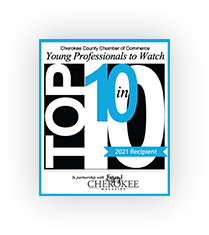Getting to Truth on Cross-Examination

Courtrooms are places where stories are told. Your attorney’s cross-examination of the witnesses for the prosecution reveals the holes in their story and demonstrates the credibility of yours. As legendary trial attorney Gerry Spence puts it, “Basic cross-examination is nothing more than a true-or-false test administered to the witness.”
The Rules of Cross-Examination
Drawing out the truth through the cross-examination of witnesses is more an art than a science for trial attorneys, but there are a few rules that always apply:
- Keep it Brief. Every question must support your theme or theory of the case, or impeach your accuser’s credibility. If a question on your list doesn’t do this, dump it.
- Primacy and Recency. The panel’s first and last impressions will stay with them. Ask the most powerful questions at the start and the conclusion of the examination.
- Do Not Rehash Direct Examination. There’s no need to cover every topic covered by direct examination, so don’t ask questions that aren’t relevant to your purpose. Hit your theories and themes, attack the accuser’s credibility, and sit down.
- Know the Answers to Your Questions. You should know the answer to every question you ask on cross-examination. Failure to know this means risking answers that do more harm to your case than good.
- Listen to the Answers. Witnesses change their stories all the time. Listen attentively to the answers on cross-examination and follow new information when it comes up, even if it means throwing out all of your carefully prepared questions.
- Do Not Argue with the Witness. Every attorney has done this—we’re only human—but arguing with a witness you know is lying is incredibly unproductive. It can really annoy the judge, and it might hurt the defense team’s credibility before the panel.
- Never Ask the Witness to Explain. Cross-examination is about controlling what the witness says through short, focused questions. If the prosecutor feels explanation is needed, they will ask for it during the redirect examination.
- Be Organized. When I conduct a cross-examination, I use each theme and theory as a roadmap or chapter to guide my questions. In preparation for cross, I like to make a chart with three columns: question, citation, and relevance.
The citation identifies the moment when a witness made a statement you want them to revisit. If the accuser changes her story, being able to cite her original allows me to impeach her credibility on the spot. The relevance column reminds me of the purpose of each question, which helps me stay focused and in control.
Capovilla & Williams have a strong track record defending military servicemembers. For more information, call (404) 496-7974.





